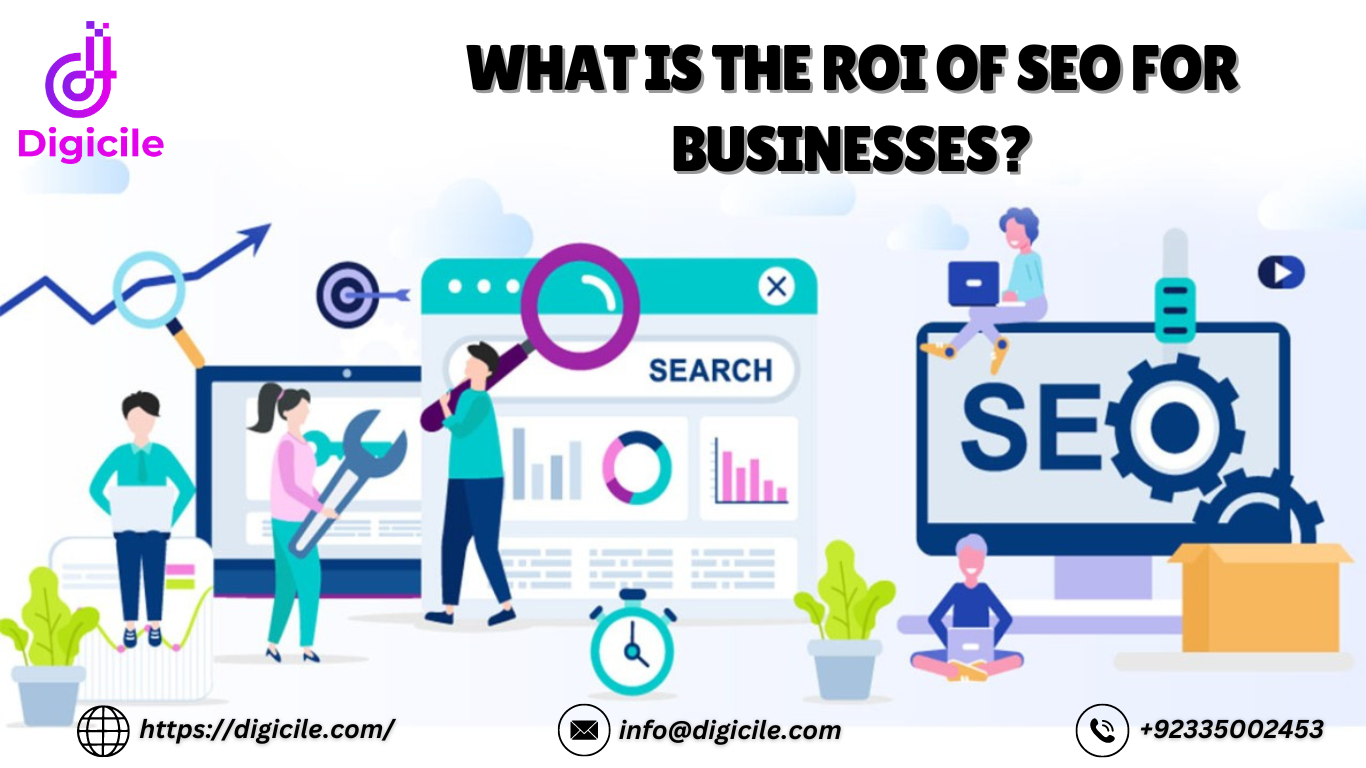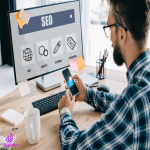SEO is generally regarded as a lengthy process aimed at helping companies achieve their goals. But how do businesses measure return on investment (ROI) whenever SEO for business is the case? Most business people wonder if SEO is as useful as maintaining its costs, particularly since advertisements yield results fast and cheaper. But SEO does have a great return that however takes time to realize when the right strategies are incorporated. That is to say, this is how SEO can bring a return on investment for companies.
1. Improving Organic Traffic: SEO for business
One of the most important objectives of SEO for business is to drive organic traffic. Organic traffic is the term used to refer to those visitors of the webpage who arrive on it via search engines such as Google. You don’t pay for every click to gain the traffic as in paid ads. As your site’s search engine optimization performance improves, more and more people come to your business organically. Therefore, there will be an influx of visitors without the need for extra expenditure on a constant basis.
Increased traffic implies that there are very many potential buyers of the product, and this can lead to increased sales or conversions. As time goes by, it makes advertising less appealing because of the reduced spending on paid ads thereby making SEO an affordable strategy.
2. Results After Some Time: SEO for business
Promotion of a website can be disappointing over time, especially if one chooses not to pay for it to be promoted further since they have paid for it once. The results of the search engine optimization strategies you implement may last for several months or pointedly, years. For instance, if a website gets good placement in search engine results, there are chances that it will remain in that position for quite a while with periodic maintenance. This conveys that returns from SEO for business are always expected far beyond the time horizons for the investments made towards them.
Consider content marketing. Today’s keyword-optimized content always brings traffic even after one year gone by, thus making SEO a worthy long term investment.
3. Cost Efficiency: SEO for business
When considering the costs, business SEO can prove to be much cheaper compared to other marketing strategies in the longer run. For instance, it can be expensive to create seo optimized content, improve site architecture, or build links among various other activities all which are done at the initial stage. These costs will be all pointless because of the great advantages that come in the future.
In this case, Paid advertising registration and running costs are high, particularly in cost-wise congestion market sectors where cost per clicks are extremely high. On the contrary, SEO for business helps one to achieve traffic and visibility consistently without the need of paying for each viewer.
4. Enhanced Rates of Conversion
SEO is effective on the type of traffic directed to your site by search engines. Search engine users who end up on your web pages are looking for programs or services which fit into your category. This means they have a higher chance of becoming clients than ordinary users who have already visited your website through paid advertisement sources.
For example, if you own a bakery, looking for the “best bakery in town” will most definitely bring customers to your bakery as opposed to someone who saw a paid ad without meaningful intent. SEO for business Increases The Right Visitors Hence More Sales.
5: Visibility of the Brand and Trust in it
SEO helps to enhance the visibility and notoriety of the brand. In other words, people tend to view a business as one that can be trusted if the business’s website is on the first page of Google search results. Most users do not even bother to scroll past more than the first few results on search engines; hence, the higher the ranking, the more people get to know your business.
Moreover, organic search results are more reliable in the users’ point of view than paid advertisement. Also, featuring in the higher ranking position helps in building the brand’s image which in return helps in building the customers’ loyalty.
6. Enhanced User Experience
User experience optimization is an essential aspect of SEO for business as well as designing websites. Google respects websites that can be navigated easily, load faster, and are compatible with mobile devices. Improving these factors causes not just an improvement in ranking but also an improvement in the visitors’ experience.
Visitors to your website are more likely to spend more time on it, check your offerings and eventually buy them if they have a good experience. Therefore, by concentrating on SEO you also improve customer satisfaction and engagement which can lead to increase in ROI.
7. Competitive Edge: SEO for business
For any business, it is always advantageous to invest in SEO. When SEO is already in play by your rivals you have no choice but to follow suit. But where they are not investing in, well this is the time to leapfrog and take a bigger slice of the market.
In the long run, by placing consistent effort into your SEO plan, you will gain great competitive advantage over your rivals and draw more traffic to your site. Before long, this improves the returns on your investments as more of the business gets directed to you rather than other competing business
8. Controllable and Quantifiable Outcomes
Businessmen turned out to be pleased with one of the features of SEO that it is business oriented. This is possible thanks to instruments such as Google Analytics: one can measure all traffic received via SEO, determine what incoming keywords are, as well as how many SEO conversions there were. This means it is possible to calculate SEO campaign ROI accurately.
Thus, you can optimize your SEO strategy, even further enhancing its efficiency, by knowing what is effective and what is not, thus ensuring that you get back the most out of your investment.
Conclusion
When done right, SEO for business offers an excellent ROI. It increases organic traffic, boosts conversions, and builds long-term brand credibility—all while being cost-effective in the long run. By investing in SEO, you’re not just improving your website’s search ranking; you’re creating a sustainable strategy that pays off for years to come.
While it takes time and effort, the ROI of SEO can be significant, especially for businesses looking for steady growth and a competitive edge in their industry.
Frequently Asked Question
1. How you can use SEO for your business?
SEO (Search Engine Optimization) helps businesses by improving their website’s visibility in search engine results. You can use SEO by optimizing your website content with relevant keywords, creating quality backlinks, improving website speed, and ensuring it’s mobile-friendly. Local SEO, which targets customers in specific regions, can also be valuable for brick-and-mortar businesses.
2. How does SEO affect a business?
SEO affects a business by increasing its online presence, which leads to higher traffic, more leads, and potentially higher sales. Effective SEO enhances brand visibility, credibility, and trust with users who rely on search engines to find products or services.
3. How do I do SEO for Google My Business?
To optimize SEO for Google My Business, claim and verify your business profile, provide accurate information (address, phone number, working hours), add high-quality photos, and encourage customer reviews. Regularly post updates and ensure your business details match across all online directories.
4. How do I find the SEO strategy for my business?
Start by identifying your target audience, understanding their search behavior, and researching keywords relevant to your business. Analyze competitors’ SEO strategies, optimize your website’s content and structure, and invest in quality backlinks. Regularly monitor your performance using SEO tools like Google Analytics.
5. What are the benefits of SEO for small businesses?
SEO helps small businesses by leveling the playing field, allowing them to compete with larger companies. It increases website visibility, attracts more organic traffic, builds credibility, and provides a cost-effective marketing strategy that can deliver long-term results, driving growth even on a tight budget.






